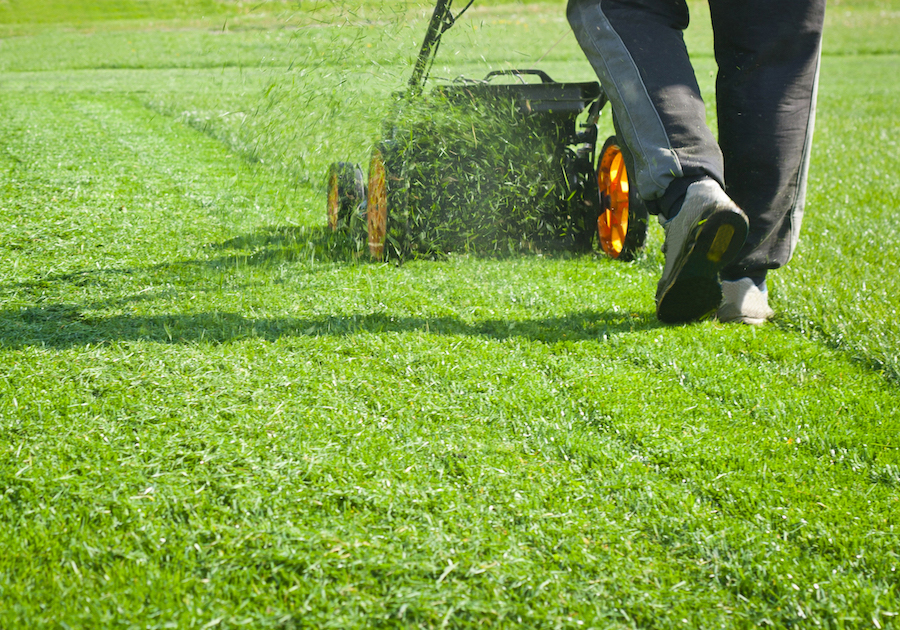The sun is shining, the days are long, and your coastal home is beckoning for some much-needed attention. As a homeowner along the coast, summer maintenance is essential for ensuring that your house can withstand the season’s heat, humidity, and occasional storms. In coastal areas, the combination of saltwater, moisture, and heat can take a toll on your home’s structure and systems. But with a little effort, you can preserve your home’s condition and keep everything running smoothly throughout the summer months.
Preparing Your Roof for Coastal Weather
One of the first areas to focus on when preparing your coastal home for summer is your roof. Coastal weather can be harsh on roofing materials. The salty air, combined with the intense sun and the occasional storm, can accelerate wear and tear. Cracked or missing shingles, weakened flashing, and clogged gutters can all lead to significant damage if not addressed in time.
Start by inspecting your roof for any visible damage. Look for missing shingles, cracks, or wear around the flashing and vents. Clean out the gutters and downspouts, ensuring that water can flow freely and won’t pool around the foundation. Clogged gutters can lead to water overflow, which can damage your roof and even cause flooding inside your home. If your roof is showing signs of significant wear, consider consulting a professional roofer for an inspection or replacement.
A well-maintained roof is crucial for more than just aesthetics; it helps with energy efficiency and weatherproofing. A damaged roof can let in heat and moisture, making it harder to keep your home cool and comfortable during the summer months.
Checking Your Air Conditioning and Ventilation Systems
Living on the coast means that your air conditioning system works overtime during the summer to keep your home cool and comfortable. High humidity and heat can strain your AC unit, and without regular maintenance, it could break down just when you need it most.
Before the summer heat sets in, schedule a professional inspection of your AC system. An expert will check the refrigerant levels, clean the filters, and ensure that all components are in working order. Dirty filters, clogged ducts, and low refrigerant can all reduce the efficiency of your system and increase energy costs.
Ventilation is another important factor in maintaining a comfortable indoor environment. Excess humidity can cause mold and mildew, especially in enclosed spaces like basements, bathrooms, and attics. Check that all exhaust fans and vents are working properly, and consider installing a dehumidifier to help control moisture levels. Proper ventilation helps prevent the buildup of moisture, which could lead to mold growth and damage to your home’s interior.
Sealing Windows and Doors for Energy Efficiency
Air leaks around windows and doors are a common problem in coastal homes. Over time, weatherstripping and seals can wear down, allowing hot, humid air to enter and cool air to escape. This makes your HVAC system work harder, driving up energy bills.
Inspect the seals around your windows and doors for any cracks or gaps. If you notice any damage, replace the weatherstripping or recaulk the windows and doors to create a tight seal. This simple task helps improve your home’s energy efficiency by keeping cool air inside and reducing the strain on your AC system.
Coastal homes are also exposed to the saltwater in the air, which can cause corrosion and deterioration over time. By properly sealing your windows and doors, you’re not only enhancing energy efficiency but also protecting your home from the elements. Well-sealed openings reduce the chance of water infiltration during storms, which can lead to water damage and mold growth.
Protecting Against Humidity and Moisture Damage
One of the biggest challenges of living on the coast is the high humidity, which can lead to moisture problems in your home. Excess moisture can cause damage to walls, floors, and furnishings, and in extreme cases, it can contribute to mold and mildew growth.
Preventing moisture damage starts with ensuring proper drainage around your home. Check that your gutters are clean and that downspouts are directing water away from the foundation. If water is pooling near the base of your home, consider regrading the soil to improve drainage. Excess moisture around the foundation can weaken your home’s structure and cause long-term damage.
Investing in moisture barriers for crawl spaces and basements can also help prevent the buildup of dampness. Dehumidifiers can be beneficial for maintaining a dry, comfortable indoor environment, particularly during the hot, humid summer months when moisture levels are at their highest.
Maintaining Your Landscaping
Coastal weather can be tough on your landscaping. Saltwater and strong winds can damage plants, and overgrown trees can pose a threat to your home’s roof and siding. Regular landscaping maintenance is essential for preserving your yard and protecting your home.
Trim back any trees or shrubs that are growing too close to your house, particularly those with branches that could damage the roof in high winds. Clean up any fallen debris and keep your yard clear of potential hazards that could damage your home during a storm. Planting salt-tolerant plants can also help minimize the effects of coastal weather on your landscaping.
Proper landscaping can also improve the overall curb appeal of your home, making it a pleasant place to spend time outdoors during the summer months. When trees and shrubs are well-maintained, they not only look good but also protect your home from the sun and wind.
Maintaining Outdoor Spaces: Patios, Decks, and Pools
Summer is the perfect time to enjoy outdoor spaces, but these areas require regular maintenance to stay in top shape. If you have a pool, ensure that the filters are clean, the pump is working properly, and the water quality is properly maintained. This helps prevent bacterial growth and keeps the pool safe and enjoyable for everyone.
Patios and decks are exposed to the elements year-round, so inspect them regularly for signs of wear. Wooden decks, in particular, may need to be resealed to protect them from moisture and the intense summer sun. Regular cleaning and sealing can help extend the life of your outdoor living spaces and keep them looking great.
If you live in a coastal area, you’ll also need to account for saltwater exposure, which can accelerate the deterioration of outdoor furniture, railings, and other materials. Consider using materials that are resistant to corrosion and weathering, such as stainless steel or composite decking, to ensure your outdoor spaces last through the summer and beyond.
Preparing for Hurricane Season
In coastal regions, hurricane season is an annual concern. While you can’t predict when a storm will hit, you can take steps to prepare your home for the possibility. Start by inspecting your windows and doors. Install hurricane shutters or impact-resistant windows to protect against high winds and flying debris. Make sure to secure any outdoor furniture, toys, or other items that could become projectiles in strong winds.
It’s also essential to have a comprehensive emergency plan in place. Stock up on essential supplies like bottled water, non-perishable food, medications, and flashlights. Keep important documents in a safe place, and ensure that everyone in your household knows what to do in the event of an evacuation.
Conclusion: Get Ready for Summer the Right Way
Maintaining a coastal home through the summer months requires a combination of preventive care, routine maintenance, and preparation for the unexpected. By addressing key areas such as your roof, HVAC system, windows and doors, moisture control, and landscaping, you can ensure that your home remains comfortable, safe, and protected throughout the season.
Whether you’re enjoying the sunny days with family and friends or preparing for the occasional summer storm, taking the time to properly maintain your coastal home can save you time, money, and stress in the long run. Stay ahead of potential issues, and your home will continue to thrive no matter what the summer brings.






1 Comment. Leave new
WrIaT KREJkfr eNW LpDWcm